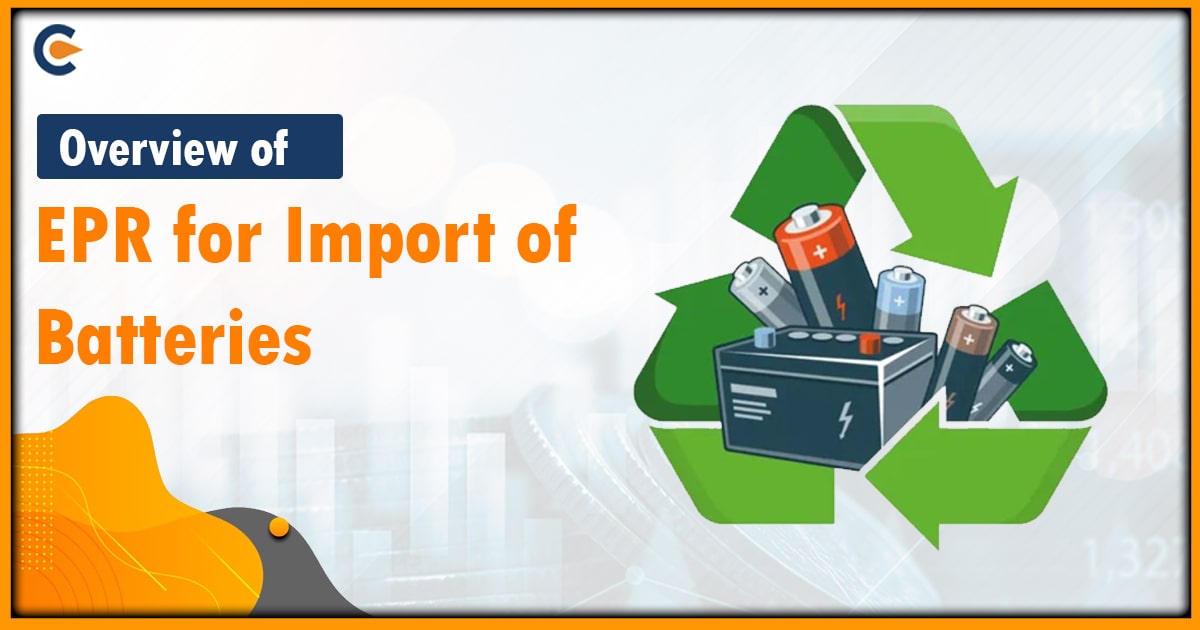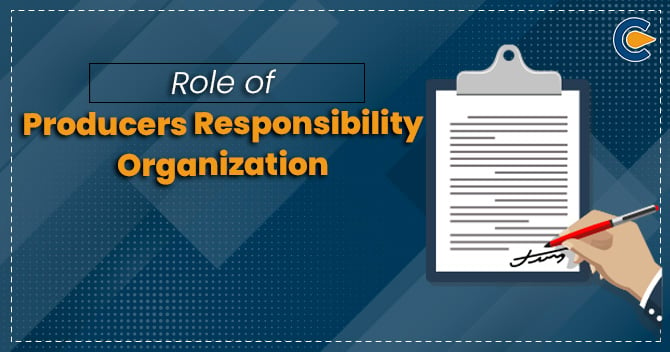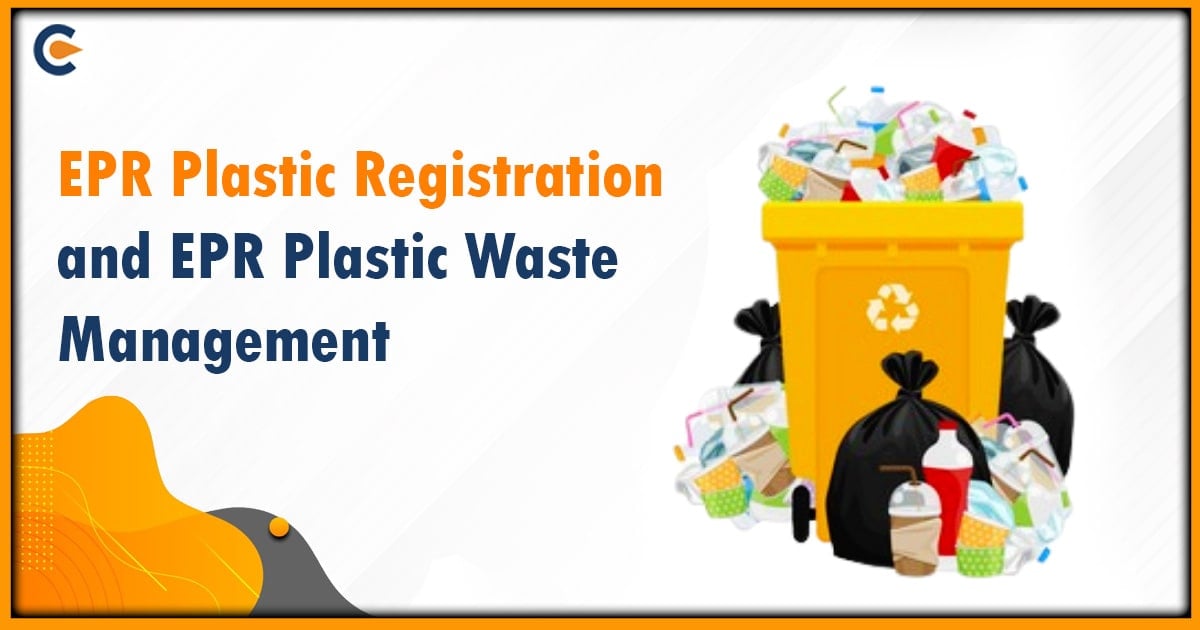Extended Producer Responsibility or EPR generally is an approach that makes it the responsibility of the manufacturer for the safe disposal and recycling of their products. Regarding the import of batteries, EPR can be applied in various ways depending on your country or region’s specific regulations and policies.
To import batteries, one must comply with EPR regulations that require battery manufacturers or importers to take responsibility for recycling or safely disposing of the batteries they bring into the market. EPR for Import of Batteries often involves registering with the appropriate authorities, meeting recycling targets, and following specific labelling and documentation requirements. It’s essential to check with your local environmental agency or regulatory body for the most up-to-date and region-specific information regarding EPR regulations for battery imports, as these can vary widely from place to place.
Requirements for EPR for import of batteries
The specific requirements for EPR to import batteries can vary significantly depending on your country or region, as different places have different regulations and standards. However, here are some common elements you might encounter when importing batteries and dealing with EPR:
- Registration: You may be required to register as an importer or producer of batteries with the relevant environmental agency or authority in your country.
- Labelling: Batteries may need to be labelled with specific information, such as recycling symbols or disposal instructions, to promote proper handling and recycling.
- Collection and Recycling Targets: EPR programs often set targets for collecting and recycling batteries. Importers or producers may be required to contribute to meeting these targets.
- Reporting: Periodically, a report is submitted mentioning the type and quantities of imported batteries and the steps taken for recycling and disposal.
- Environmental Fee or Contribution: In some regions, you may be required to pay an environmental fee or contribution for each battery imported, which goes toward funding recycling and disposal programs.
- Battery Types: EPR for Import of Batteries of different types, e.g., lead-acid, lithium-ion) may have distinct EPR requirements, so it’s important to understand which types you’re importing.
- Battery Packaging: Regulations may apply to the batteries themselves and the packaging they come in. Make sure the packaging and labelling needs are fulfilled as per the compliance.
- Compliance with Battery Chemistry Restrictions: Some regions may have restrictions on using specific battery chemistries due to environmental concerns, and you should be aware of any restrictions that apply to your imports.
- Battery Recycling Partnerships: Explore partnerships with recycling facilities or organizations to ensure imported batteries are properly recycled or disposed of.
Concerned Authority
The EPR-related regulations and guidelines are made by the Ministry of Environment, Forest and Climate Change (MoEF&CC) and the Central Pollution Control Board (CPCB)[1], including e-waste. The guidelines helped in implementing the EPR for various products, which include batteries as well. The guidelines’ main aim is to lessen the environmental impact and promotion of safe disposal and recycling.
Starting a Business in the import of batteries
The demand for batteries continues to grow in many sectors, so starting a business can be a promising venture. Here are some steps to consider:
- Market Research: Research the battery market, identify the types and brands in demand, and understand your target audience.
- Business Plan: Make a business plan mentioning your aim, budget, strategy, pricing, and the approach related to marketing.
- Legal Requirements: Register your company, get the required licenses, and make sure you adhere to import laws and battery safety standards.
- Supplier Selection: Identify reliable battery manufacturers or suppliers, negotiate favourable terms, and establish strong relationships with them.
- Logistics and Shipping: Set up a streamlined logistics system to handle imports efficiently. Some factors should be kept in mind, like shipping, customs clearance, and warehousing.
- Quality Control: Ensure the batteries you import meet safety and quality standards. Measures like quality control and inspection should be conducted.
- Distribution Channels: Determine how you’ll distribute the batteries, whether through online sales, retail partnerships, or other channels.
- Marketing and Branding: Develop a strong brand presence through marketing efforts, including a website, social media, and advertising.
- Customer Support: Provide excellent customer service and warranty support to build trust with your customers.
- Financial Management: Keep a close eye on your finances, manage cash flow, and plan for growth.
- Environmental Considerations: Be aware of environmental regulations and consider eco-friendly options if possible.
- Stay Informed: Keep up with industry trends and technological advancements in batteries to remain competitive.
Legal Perspective related to EPR for Import of Batteries
The legal provisions for EPR for import of batteries can vary widely from country to country, and they can change over time. Here’s a general overview of what you might find in such legal provisions:
- Definition of Responsibilities: Legal provisions will define the roles and responsibilities of importers or producers of batteries in terms of collection, recycling, and disposal.
- Registration and Reporting: The law may require importers to register with a designated authority, submit regular reports on the types and quantities of batteries imported, and disclose their plans for recycling and disposal.
- Collection and Recycling Targets: Specific targets are frequently set forth by legal provisions for the collection and recycling of batteries, and importers may be required to assist in achieving these targets.
- Labelling and packaging: it includes rules and regulations related to labelling and packaging needs and safe disposal of material used in batteries. Packaging requirements should also be addressed.
- Environmental Fees or Contributions: Some legal frameworks impose environmental fees or contributions on battery imports, which are used to fund recycling and disposal programs.
- Battery Types: Different battery chemistries and types (e.g., lead-acid, lithium-ion) may be subject to varying regulations, and legal provisions might outline these distinctions.
- Compliance and Enforcement: The law will likely include provisions for monitoring and enforcing compliance with EPR requirements, including penalties for non-compliance.
- Battery Recycling Infrastructure: Legal provisions may address the establishment and maintenance of recycling facilities and infrastructure to support proper battery recycling and disposal.
- Environmental Impact Assessment: Depending on the scale of battery imports and their potential environmental impact, legal requirements may include environmental impact assessments or studies.
- Waste Management and Hazardous Materials Regulations: EPR for batteries is often tied to broader waste management and hazardous materials regulations, so these may also be relevant.
Merits of EPR for Import of Batteries
EPR for the import of batteries has both merits and demerits. To import batteries, you may need to comply with the EPR for Import of Batteries, which requires battery manufacturers or importers to take responsibility for recycling or safely disposing of the batteries they bring into the market.
Here are some of the key advantages:
- Environmental Benefits: These programs help in the safe disposal of batteries and recycling. It also reduces the negative impact on the environment caused by hazardous materials in batteries, for example, metals and chemicals.
- Resource Conservation: Recycling batteries conserves valuable resources, including metals like lithium, cobalt, and rare earth elements, reducing the need for new resource extraction.
- Consumer Awareness: EPR often includes labelling and educational efforts, increasing consumer awareness about the importance of recycling batteries and reducing improper disposal.
- Innovation: EPR can incentivize manufacturers to design batteries with recycling and sustainability in mind, leading to innovation in battery technology and materials.
- Cost Sharing: Distributing the responsibility for recycling and disposal among producers or importers helps distribute the associated costs more equitably.
Demerits of EPR for Import of Batteries
- Compliance Costs
- Complexity and Administrative Burden
- Potential for Passing Costs to Consumers
- Ineffective Implementation
- Market Distortion
- Lack of Global Consistency
Conclusion
EPR for the import of batteries is a regulatory approach that differs by country or region, with specific legal provisions and requirements. Importers of batteries typically need to adhere to a set of rules and responsibilities that can include registration, labelling, reporting, meeting collection and recycling targets, and potentially paying environmental fees or contributions.
Compliance with these provisions is required to ensure proper battery handling, recycling, and disposal, reducing environmental impact and promoting sustainability. To fully comprehend the EPR requirements for importing batteries in your area, consult with local environmental agencies or legal experts who can provide the most up-to-date and region-specific information.
FAQs
It places a responsibility on them to take environmentally friendly E-waste management measures. EPR certification is required for almost all importers and manufacturers. The CPCB department has primarily mandated EPR Registration.
The EPR-related regulations and guidelines are made by, the Ministry of Environment, Forest and Climate Change (MoEF&CC) and the Central Pollution Control Board (CPCB)
EPR requires that all waste batteries be collected and sent for recycling/refurbishment, and it prohibits disposal in landfills and incineration. Producers may engage or authorize any other entity to collect, recycle, or refurbish waste batteries in order to meet their EPR obligations. The Indian government has released draft guidelines on battery waste management, which propose mandating EPR and holding manufacturers accountable for the collection, storage, transportation, recycling, and disposal of spent batteries.
As an importer, you will need to comply with the EPR for Import of Batteries, which requires battery manufacturers or importers to take responsibility for recycling or safely disposing of the batteries they bring into the market. This often involves registering with the appropriate authorities, meeting recycling targets, and following specific labelling and documentation requirements.
Producers, importers, brand owners, and manufacturers of electrical and electronic equipment (EEE) and other products that create e-waste, plastic waste, battery waste, or tire waste are required by law to register as EPRs.
For the management of electronic waste, manufacturers and importers of electrical and electronic equipment from India and abroad must obtain EPR certification.
EPR for Import of Batteries is mandatory for almost all importers and manufacturers to have an EPR Certification
Read Our Article: Obligations For Battery Recyclers Under Batteries (Management And Handling) Rules, 2001











